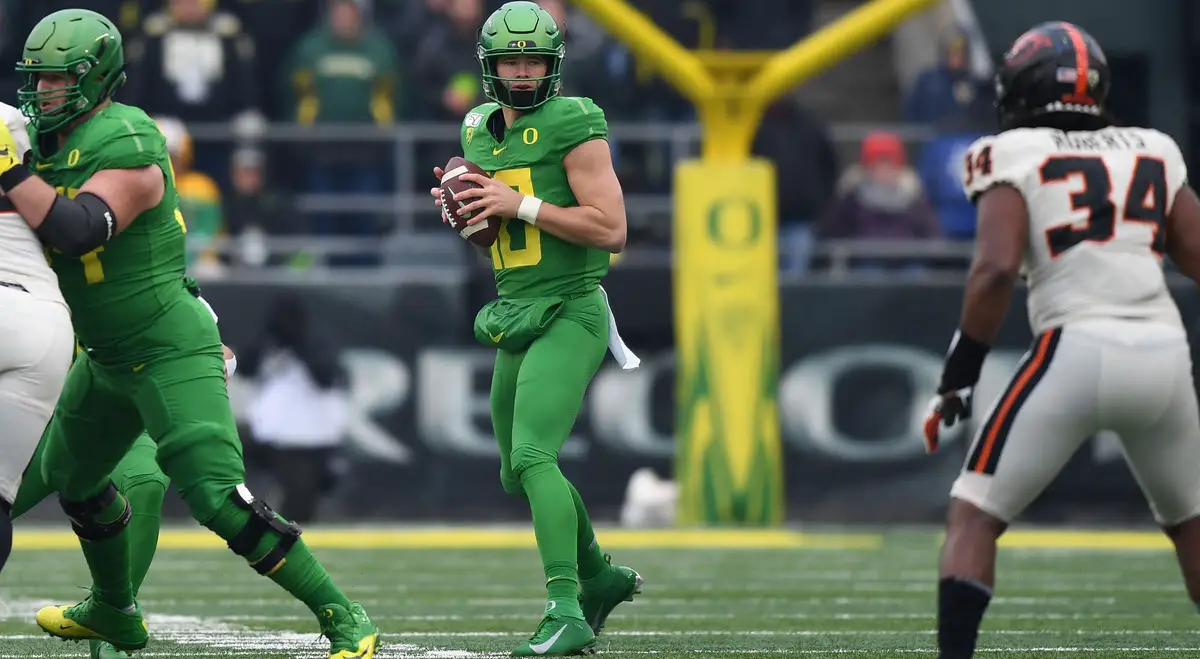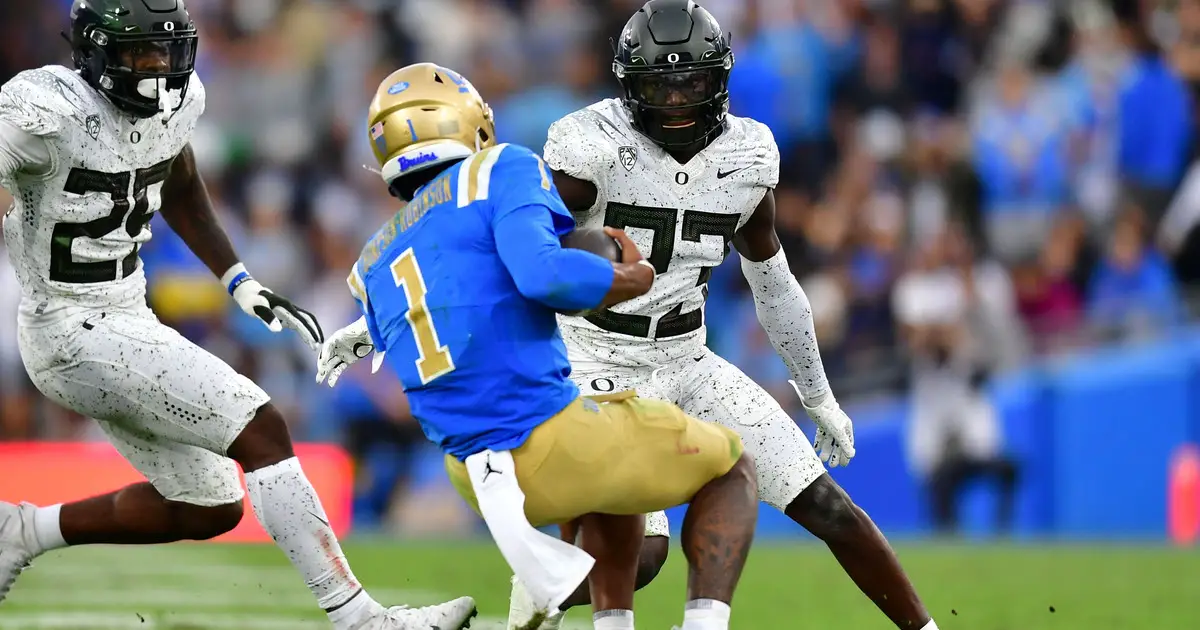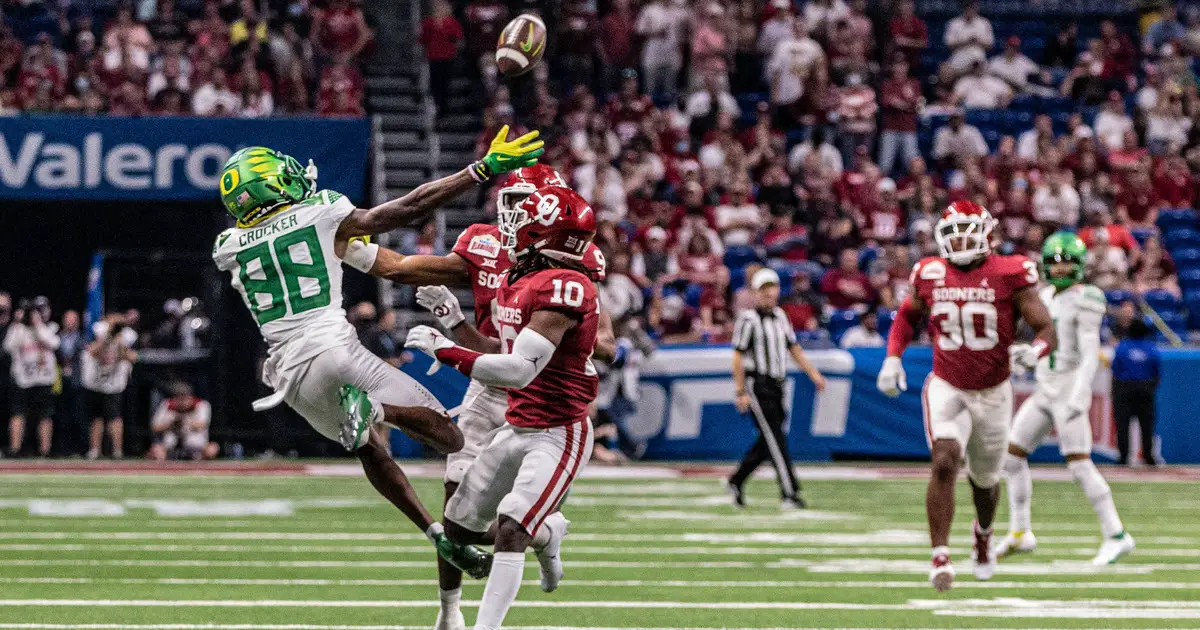This year it has become abundantly clear just how broken the College Football post-season is. Between the coaching carousel, bowl games, bowl game opt-outs, and the early signing period, the month of December is complete chaos. Not every team experiences this chaos equally because any team with coaching turnover feels the stress of this time period more than others.
Not all these problems have easy solutions, but one that can be easily fixed and have a major impact is doing away with the early signing period. The early signing period really only hurts the teams that are on the coaching carousel that December, though it does seem to needlessly hurt teams with coaching turnover and recruits equally.
The early signing period as we know it has only been around since 2017, but as Oregon fans we have witnessed our head coach leaving us on the week before this signing period and it has resulted in the loss of a once promising recruiting class both times. The first time was in 2017 when Willie Taggart left Oregon for Florida State and left Mario Cristobal scrambling to secure the Oregon recruiting class.

Was Justin Herbert the biggest victim on the Oregon team from a lack of wide receiver depth?
Perhaps the biggest loss to this recruiting class was all the wide receiver verbal commits who de-committed, which probably hurt Justin Herbert the most in the following years as Oregon truly lacked a receiver corps who could play to his level. Oregon ended up signing three other wide receivers in the 2018 recruiting class, though only Isaah Crocker has ever seen the field and he has yet to make a major impact at Oregon.
This year Cristobal left and Oregon hired Dan Lanning, who has had to work to preserve as much of the recruiting class as possible while also working to preserve the entire team with the growing use of the transfer portal.
Oregon is not alone in this early signing period chaos. Any team that hires or loses a coach in early December is in the same situation. It is unfair for the coaches and the recruits. Coaches tend to be forced into adopting a class they had little to no say in putting together, but for the sake of the program they feel obligated to try to sign regardless.
As for the recruits, they are left with the decision to either sign on with a new head coach, who they might not even know, or reconsider their decision entirely — and in the era where players commit more to a coaching staff than to a school, this has negative impacts for both the program and the recruit.

Verone McKinley III stuck with his Oregon pledge in 2018 and had an incredible career as a Duck.
Recently Washington signed Germie Bernard during the early signing period. He was close with Junior Adams, who is now Oregon’s wide receiver coach, and when Adams left Washington for Oregon Bernard petitioned and was granted a release from his letter of intent and was allowed to look elsewhere. He is not the first and will not be the last to look to leave the program he committed to because the coaches who recruited him are now employed elsewhere. It is the nature of the industry these days, but it is not fair to anyone involved.
There is more emphasis on the early signing period than ever before, and this puts lower-ranked players in a more dubious position because they need to sign in the early signing period or risk not having a spot on any team. This affects three-star players the most because they are not only competing for spots from other high school recruits, but also those from the transfer portal. They need to sign early to ensure they have their spot on the roster. Most of the time coaches like to guarantee a spot once a player has locked in with their team, but that is by no means a rule.
Eliminating the early signing period would give coaches and recruits alike the chance to take the time they need to evaluate their rosters and make educated decisions, and with so much coaching and personnel movement occurring in December, why not eliminate the early signing period?
David Marsh
Portland, Oregon
Top Photo Courtesy of Alamo Bowl

Natalie Liebhaber, the FishDuck.com Volunteer Editor for this article, works in the financial technology industry in Bozeman, Montana.
Related Articles:
Ducks Football 2026: Breaking Down Strengths And Weaknesses
These Ducks Will Have Monster Second Seasons as Starters
Oregon Football: Early 2026 Ranking Projections
FishDuck Foaming Over Upside of 2026 Diamond Ducks
Unbelievable...Same SEC Stuff, Different Day
Why Oregon Football Always Belongs in the National Conversation

David Marsh is a high school social studies teacher in Portland, Oregon. As a teacher he is known for telling puns to his students who sometimes laugh out of sympathy, and being both eccentric about history and the Ducks.
David graduated from the University of Oregon in 2012 with Majors in: Medieval Studies, Religious Studies, and Geography. David began following Ducks Football after being in a car accident in 2012; finding football something new and exciting to learn about during this difficult time in his life. Now, he cannot see life without Oregon football.

